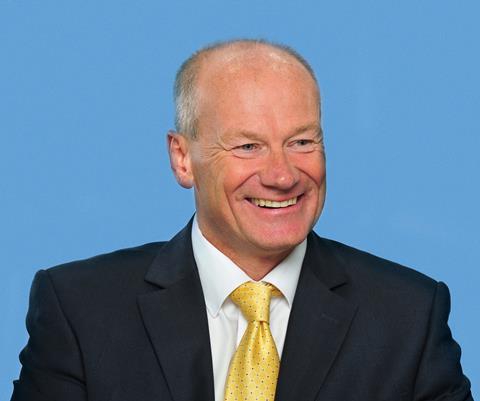Deal expected to be wrapped up by spring next year
Vistry is buying rival housebuilder Countryside for a cash and share offer of more than £1.2bn.
In a stock exchange announcement this morning, the firm, which is due to release its interim results on Thursday, said the deal valued its rival at £1.254bn.

It said the deal would create “significant benefits and value creation from the increased scale of the combined business and synergies of at least £50 million and potentially from the Countryside Group’s timber frame capability, with operational benefits including procurement processes, an improved implementation of the Future Homes Standard and the reduction of people risk within the current tight labour market”.
And it added: “The revenue of the Combined Group’s Partnerships business would be expected to increase to over £3 billion per annum in the medium term, materially in excess of the Vistry Group’s existing medium term target of approximately £1.6 billion.”
In the statement, Vistry, which bought Galliford Try’s housing business Linden at the start of 2020, said the deal is expected to be wrapped up in the first quarter of next year.
The enlarged business will be led by current Vistry chief executive Greg Fitzgerald.
This deal would make the business the UK’s largest partnerships housebuilder by some distance, with both Countryside and Vistry already two of the largest. The deal values Countryside shares at 249p, 9% above their closing price on Friday – but well under half what the firm has traded at within the last year.
In the statement, Vistry, which bought Galliford Try’s housing business Linden at the start of 2020, said the deal is expected to be wrapped up in the first quarter of next year. The enlarged business will be led by current Vistry chief executive Greg Fitzgerald.
Countryside has secured support already from shareholders representing 39.1% of the shareholding of the company, in the form of Browning West, Inclusive Capital Partners – which earlier in the summer had itself made an offer to buy Countryside – David Capital Partners, Anson Advisors and Abrams Capital Management.
Inclusive Capital put out a statement making clear that it was “supportive of the Vistry Offer, recognising the significant synergies between the two entities and considerable value creation opportunities for shareholders presented by the combination” and was no longer considering making an offer for Countryside.
The statement also held out the possibility that, in the event the stock market does not value the business as anticipated by 2025, the combined Vistry and Countryside Partnerships business might be spun out into a separate standalone partnership firm, leaving the traditional housebuilding efforts of Vistry – formerly Bovis and Linden and the remaining parts of Countryside – separate.
Fitzgerald said the proposed merger had “a highly compelling strategic rationale” adding: “It will create a leader in the Partnerships housing sector, with the scale and expertise to accelerate profitable growth across both Partnerships and Housebuilding, and expand the delivery of much needed affordable housing across England. The proposed Combination will add the strength of the Countryside brand to Vistry’s own well-established Bovis Homes and Linden Homes brands and will leverage the skills and market knowledge of both the Countryside and Vistry teams.”
The announcement comes after Countryside put itself up for sale following a rocky period for the former stock market darling. Former chief executive Iain McPherson quit at the start of the year following a shock profit warning, leading to a major restructuring which pre-empted the sale of its brand new MMC factory.
The profit warning came just over a year after Countryside had set itself on a course to become a pure-play “partnerships” housebuilder, following shareholder pressure, despite having initially found favour from the stock market as a hybrid traditional housebuilder and partnerships builder.
The widely respected chair of the firm, John Martin, resigned without explanation in July, shortly Countryside confirmed it had put itself up for sale.


























No comments yet